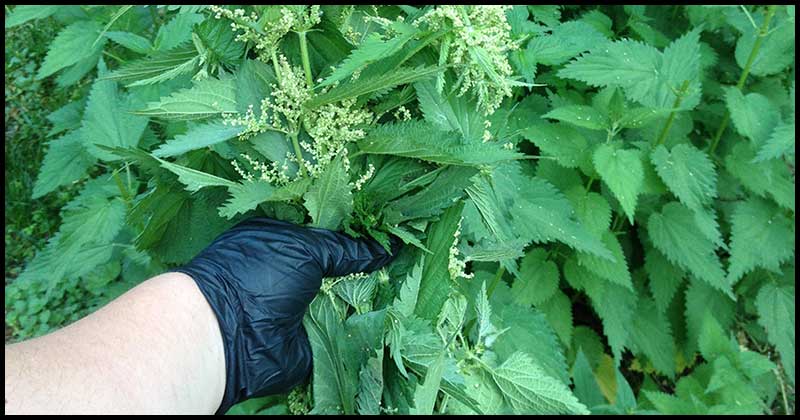Stinging nettle (Urtica dioica) is a very nutrient-dense and nourishing herb. It has leaves and stems that are covered with bristly hairs that sting when touched. Since ancient times, it has been used as food, medicine, and a nourishing tonic.
Infusing a large amount of dried stinging nettle leaves in water for a long period of time is one of the easiest and most traditional ways of experiencing the herb’s healing powers.
Packed With Essential Minerals
Nettle tea, made from dried nettle leaves, is loaded with minerals like magnesium and calcium, according to a study (1).
Moreover, researchers also found that dried nettle leaf has more boron, calcium, magnesium, phosphorus, potassium, and strontium than dried chamomile, sage, peppermint, St. John’s wort, linden, and lemon balm (2,3).
Loaded With Polyphenols
Nettle has high levels of polyphenols, powerful compounds that were found to possibly play a role in lowering one’s risks of chronic diseases related to inflammation, such as heart diseases, diabetes, obesity, and cancer (4).
Helps Treat Muscle And Joint Pain
Since nettle possesses anti-inflammatory and analgesic properties, it has been used in the treatment of sore, stiff muscles, and joints. According to a review of research published in 2018 in the journal Molecules, it may alleviate the symptoms of osteoarthritis and joint pain, typically in the case of hands, knees, hips, and spine (5).
The Arthritis Foundation suggests that nettle tea may also reduce the inflammation and pain associated with osteoarthritis (6).
Boost Urinary Tract Health
Consumption of nettle tea may help flush harmful bacteria from the urinary tract. It may be beneficial for individuals who have urinary conditions, such as benign prostatic hyperplasia (BPH). BPH, also called prostate gland enlargement, is a common condition as men get older. It can cause uncomfortable urinary symptoms, such as blocking the flow of urine out of the bladder and also urinary tract, or kidney problems (7).
In a study, men with BPH who took nettle extract experienced fewer clinical symptoms than those who didn’t (8).
Diabetes Management
When it comes to blood glucose management, nettle may possibly help.
In a study, a group of people with type 2 diabetes who were taking insulin as well as oral diabetes medications experienced a decrease in their blood glucose levels and A1C (a blood test that measures the average blood glucose, or blood sugar, level over the past 3 months) after taking nettle leaf extract (9).
How To Make A Stinging Nettle Tea
Add water to the leaves and bring the water just to a boil (use about two cups of water for a cup of leaves). Turn off the stove and let sit for five minutes. Pour the mixture through a small strainer and add a bit of honey or cinnamon.
Sources:
- https://www.ptfarm.pl/pub/File/Acta_Poloniae/2012/1/033.pdf
- https://www.researchgate.net/publication/230622520_Multi-element_analysis_of_mineral_and_trace_elements_in_medicinal_herbs_and_their_infusions
- https://www.ptfarm.pl/pub/File/Acta_Poloniae/2014/3/385.pdf
- https://www.mdpi.com/2072-6643/10/11/1618
- https://www.thehealthy.com/home-remedies/nettle-tea-benefits/
- https://www.arthritis.org/health-wellness/treatment/complementary-therapies/supplements-and-vitamins/supplement-and-herb-guide-for-arthritis-symptoms
- https://www.mayoclinic.org/diseases-conditions/benign-prostatic-hyperplasia/symptoms-causes/syc-20370087#:~:text=Benign%20prostatic%20hyperplasia%20(BPH)%20%E2%80%94,urinary%20tract%20or%20kidney%20problems.
- https://www.ncbi.nlm.nih.gov/pmc/articles/PMC3589769/
- https://pubmed.ncbi.nlm.nih.gov/24273930/









